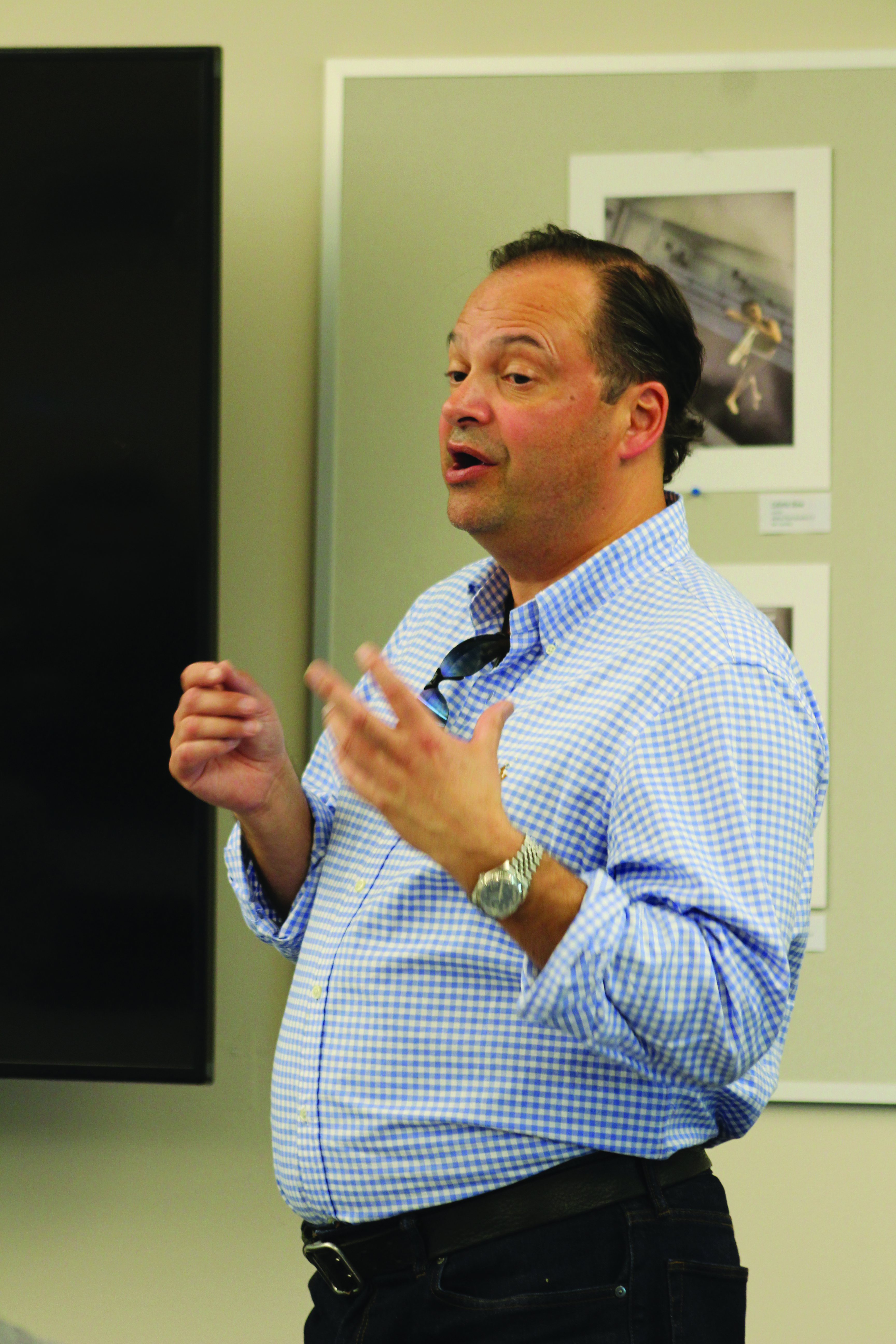
Clayton Stanger, the Regional Director at the Office of Foreign Mission for the State Department came to talk about his job experiences to Aragon students on April 12. The event took place in the MPR from flex to lunch.
Stanger informed students about the Office of Foreign Mission’s work and the function of the US Department of State. In addition to talking about his line of work, he provided his insight on US foreign policy and current international situations. The Office of Foreign Mission is responsible for ensuring equal treatment of US diplomatic and consular personnel abroad and regulating activities of foreign mission and consulates on the West Coast, particularly in San Francisco.
MUN’s search for a speaker began months ago. Secretary of Model UN club senior Ethan Wong reached out to Stanger.
“I started looking into all the diplomatic missions that we had, mostly in San Francisco, and so I looked up all the many consulates that we had in San Francisco, and I also came across some of our US missions, such as the Office of Foreign Missions,” Wong said.
A main reason that Stanger was chosen to speak was his relevance to students attending the presentation.
“I didn’t want to invite a foreign government official to give some insight because with Model UN, most of us would be seeking jobs in the US, rather than internationally,” Wong said. “I thought it would offer a better experience from someone here from the US.”
Many students, like junior Mikayla Fahrenbruch, gained new perspective on the realities of a job like Stanger’s.
“Most people assume if it was politics or anything like that, some people say your career will be boring,” Fahrenbruch said. “But on the contrary, his job was one of the most adventurous I’ve heard about. I thought it was the perfect balance between being involved with the government and also being able to adventure.”
Stanger’s presentation confirmed some of MUN club member sophomore Rumi Loghami’s perceptions about careers in foreign relations.
“[There was a] part where he told us about relationships and how that has a lot more to do with your job than really anything else,” said Loghami. “In Model UN, that is a lot of what you have to do … Him saying that verified the fact that that’s how it actually works in reality.”
“I thought [Stanger’s job] was the perfect balance between being involved with the government and also being able to adventure”
Some attendees of the presentation not only left with new information, but with new considerations for the future.
“[Stanger] got [the position] thinking he wasn’t really going to get in, so that told me that maybe I should look into that more, so it opened up more opportunities for me,” said sophomore Aryan Mondkar.
Due to the positive reception of this speaker, Loghmani hopes they can continue these informational talks in the future.
“The old cabinet doing this is helpful because it show us, as the [cabinet members next year], what to do and what we should strive to do because this speaker was pretty well made,” Loghmani said. “Doing something like this … sets a precedent for what other speakers should be like.”
Stanger defied preconceived notions of his job by emphasizing personal relationships.
“We couldn’t get anything done on our [commission for legislation on tuna], and the Venezuelans kept blocking us. To the Americans, I said, ‘You know what? Let’s go out with three or four countries including Venezuela,’ and we went to the Noraebang [karaoke] room,” Stanger said. “We drank a bunch of beer and ate food. We kept singing ‘Kung Fu Fighting,’ and the Venezuelans were having a blast. The next day, when we were trying to get things moved through, they were like ‘Yeah.’ It’s all about personal relations.”
Stanger’s presentation left Wong with a newfound appreciation for the position.
“The work they they’ve accomplished through those relationships just highlights the aspects that we don’t really normally know about,” Wong said. “We view the State Departments as bureaucrats that just push paper and try to solve problems on the sidelines, but it shows what the real work the State Department does, and I think that was very enlightening.”
Additional reporting by Kimberly Woo.



